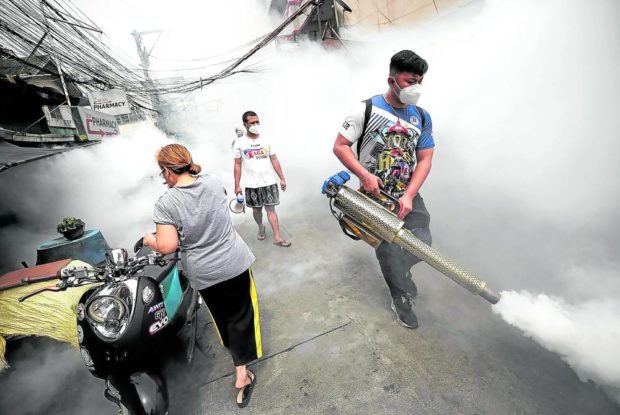Calabarzon had 6,362 dengue cases since January 1, says DOH

Fogging operations against dengue. File Photo
LUCENA CITY—The Calabarzon region had recorded 6,362 dengue cases since the start of the year, the Department of Health (DOH) reported Thursday, July 21.
The Health Education and Promotion Unit of the DOH–Calabarzon reported that from January 1 to July 16, Laguna topped the list with 2,004 cases followed by Rizal (1,317), Quezon (1,144), Cavite (948), and Batangas (879).
Twelve persons died from dengue in Laguna (5), Batangas (3), Rizal (2), and one each in Cavite and Quezon during the period.
DOH-Calabarzon noted on July 13 that the dengue cases in the region increased by 40 percent compared to recorded cases during the same period last year.
The Regional Surveillance and Epidemiology Unit said the dengue patients this year were from 2 to 60 years old.
Article continues after this advertisementBites of infected Aedes aegypti mosquitoes spread dengue viruses to people. The infection triggers a severe flu-like illness often followed by a sharp drop in an infected person’s platelet count.
Article continues after this advertisementThe symptoms are sudden onset of fever with severe headache, severe pain behind the eyes, muscle and joint pain, rash, easy bruising, and nose or gum bleeding.
Health authorities remind the public to prevent an outbreak by adopting the 4S strategy: search and destroy breeding places, self-protection, seek early consultation, and support fogging/spraying in hotspot areas.
The Philippines has no anti-dengue vaccine available since the Food and Drug Administration revoked the certificate of product registration of the controversial Dengvaxia, which Sanofi Pasteur manufactures.
The cancellation happened after the vaccine was linked to the deaths of children who received the shot.
In January 2019, the DOH said no death had been confirmed to be directly attributed to Dengvaxia, the world’s first commercially available vaccine against dengue fever.
lzb